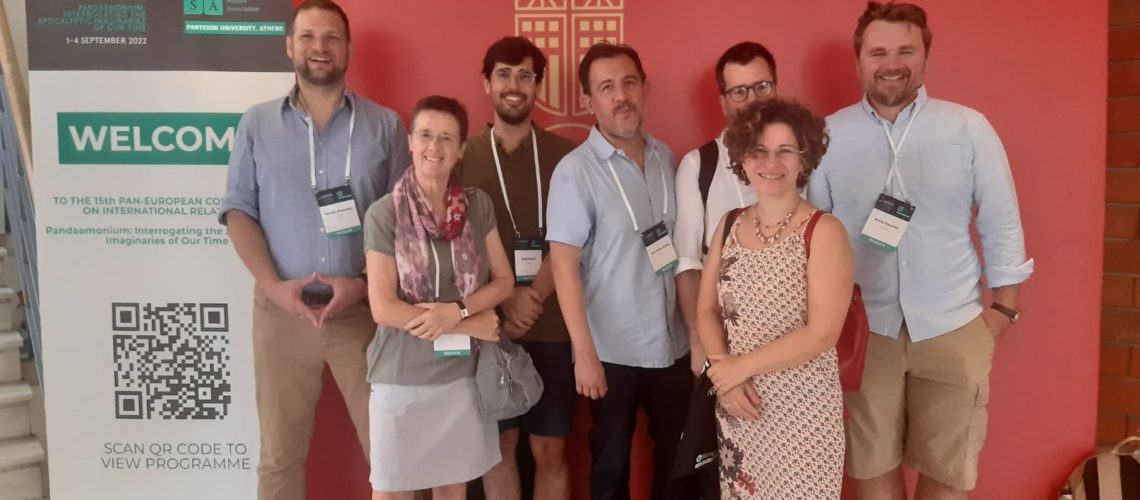The Observatori researchers, Esther Barbé (UAB-IBEI), Oriol Costa (UAB-IBEI); Michal Natorksi (Maastricht University), Valeria Bello (Blanquerna-Universitat Ramon Llull), Oscar Fernández (IBEI-IBEI), Diego Badell (IBEI-IBEI), Diego Badell (IBEI) Llull University), Óscar Fernández (IBEI), Diego Badell (IBEI), Martijn Vlaskamp (IBEI), Juan Pablo Soriano (UAB) and Adrià Rivera Escartin (IBEI) presented their new research at the fifteenth EISA Pan-European Conference: Pandaemonium: Interrogating The Apocalyptic Imaginaries Of Our Time, which took place in Athens, Greece, between 1 and 4 September.
Barbé and Costa presented the paper “EU Foreign Policy and the fragmentation of the liberal international order: an agenda for the future of the liberal international order: a research agenda” in the panel: The strategic turn of autonomy. EU foreign policy in a fragmenting liberal international order” chaired by Christian Kaunert (Dublin City University) Ana E. Juncos (University of Bristol). This was within the framework of the EUSOV project.
In the same panel, Vlaskamp presented the paper “What is the Price of Strategic Autonomy? How the EU’s Energy Transition Can Contribute to Violent Conflicts and Sabotage Other Foreign Policy Aims”; and Soriano presented his research “A strategic culture perspective on the EU’s quest for technological sovereignty in a deteriorating geopolitical and security environment”.
Fernández presented the paper ” Underperforming, but also underestimated: challenging prevailing narratives about the European Union’s actorness in the field of global health” as a participant in the panel ”EU Foreign and Security Policy, its Partners and Rivals in the 21st Century” chaired by Justinas Lingevicius (Vilnius University).
Badell presented the paper ”Exploring the effects of norm contestation as opposition and dissent on EU foreign policy. Insights from the migration and women’s rights regime” as a participant in the panel “Understanding Norms: Emergence, Diffusion, Contestation and Disappearance: Normative contestation and EU foreign policy” chaired by Ana E. Juncos (University of Bristol) and Oriol Costa (UAB-IBEI).
Finally, Rivera Escartin presented his work co-authored with Elisabeth Johansson-Nogués (IBEI) “Democratic backsliding and LIO contestation: the cases of Brazil, Hungary, India and Turkey” in the panel “Contestation in International Politics: Contestation, Democratic Backsliding and Legitimacy Crisis” chaired by Erna Burai (Geneva Graduate Institute) and Cecilia Ducci (University of Bologna).

